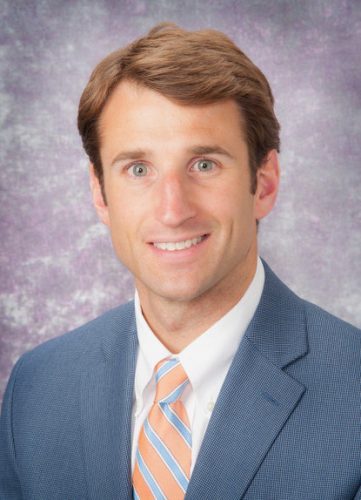During this unprecedented public health crisis, COVID-19 concerns and the resulting impact from the pandemic have been causing anxiety for many, and for some, leading to sleep loss. Mass. Eye and Ear sleep medicine experts Noah Siegel, MD and Phillip Huyett, MD weighed in on the importance of sleep and ways to fight insomnia during times of high stress.
As we navigate the lifestyle changes associated with the COVID-19 pandemic, some people are experiencing a change in their sleep quality and duration. Many are seeing a shift in their work schedules, including commute time, and for some this change is positive, allowing for an opportunity for more consistent sleep and feeling well-rested.
On the other hand, there are people suffering from what’s known as adjustment, or short-term (acute) insomnia. This type of insomnia, as opposed to chronic insomnia, is associated with an inciting event or stressor – in this case the pandemic and its secondary effects (e.g. unemployment).
“Stress increases cortisol levels, which can dial up the body’s response, and that is exactly the opposite of what you want when initiating sleep,” Dr. Siegel, director of Sleep Medicine and Surgery at Mass. Eye and Ear, said to Focus. “There are a number of people that are anxious for good reason right now, worrying about their health and that of loved ones, and it can negatively impact sleep and health.”
Stress can worsen sleep; lack of sleep may increase infection risk
Stress can be an amplifier for chronic conditions, including pain and depression. For someone who has baseline issues with insomnia, added stress will only exacerbate the issue, Dr. Siegel pointed out. Poor sleep quality and shortened sleep duration can further worsen pain and depression.
Sleep is a time of restoration and recovery for your mind and body, including your immune system. During a high health risk period, your quality of sleep may be even more important.
Previous research includes a study in 2015 which tested groups of people that were sleeping for five versus seven hours on seven consecutive nights. Those who slept for five hours resulted in a 350 percent increased risk of rhinovirus, or the common cold. While these conditions are far different in severity, Dr. Siegel noted that the study reflects the impact on immunity. A single night of insufficient sleep, (<4 hours), results in a 70 percent decrease in natural killer cells in your bloodstream, according to another study.
“As a society, especially in a city like Boston where a large portion of the population is chronically sleep-deprived, this may be a good time to see how our bodies feel with sufficient sleep.” – Dr. Noah Siegel
Tips and treatments for falling asleep if you feel anxious
Improve sleep hygiene
Sleep hygiene refers to lifestyle changes people can make to improve their ability to fall and stay asleep. “These include making changes to behavior – keeping a consistent sleep schedule seven days a week and avoiding napping, even when many of us lack the degree of daytime structure of six weeks ago,” said Dr. Huyett, sleep medicine and surgery specialist at Mass. Eye and Ear.
“Set yourself up for success – cut out caffeine intake after noon, avoid work and mentally stimulating activities prior to bed, and make sure your room is dark, cool and quiet,” he said. “I’ve had a number of patients who were cured from their insomnia just by taking their alarm clock out of their bedroom,” Dr. Huyett added. “For these individuals, being unaware of the time prevented them from worrying about their sleep duration (counting hours).”
A major component of sleep hygiene includes limiting screen time, and resulting blue light exposure, Dr. Huyett noted.
Light can drastically impact your sleep, and screen time should be stopped 45 minutes before bed, he said. Remove any screens including televisions, phones and tablets from the bedroom when possible.
If you have trouble controlling screen time, try blue light filtering glasses or changing your phone’s brightness settings.
Consider therapy before medications
The recommended first line therapy for getting and staying asleep is cognitive behavioral therapy for insomnia (CBTi). This type of therapy may include using distraction techniques like focused imagery, where you concentrate on positive memories and experiences. Other methods include muscle relaxation, meditation and breathing techniques. There are several meditation apps people can listen to as they wind down.
Others try hypnotic therapy, or sleeping pills, in conjunction with CBTi. Doctors recommend behavioral and lifestyle modifications rather than medication because they are more likely to get to the underlying cause of insomnia. While some try over-the-counter sleep medications, such as melatonin or antihistamines, many people take them incorrectly in terms of dosing and timing, warned Dr. Huyett. There are also risks with any medication.
“True pharmacologic treatments for insomnia really require a visit with your doctor,” he said.
Use this time to focus on your overall sleep health
Drs. Siegel and Huyett urged people to use extra time at home to take inventory of their sleep.
“This pandemic has given us an opportunity to get into a good rhythm and explore how we feel when we get enough sleep,” said Dr. Siegel. “As a society, especially in a city like Boston where a large portion of the population is chronically sleep-deprived, this may be a good time to see how our bodies feel with sufficient sleep. Maybe it will result in us putting more value on getting adequate sleep every night going forward.”
Additionally, if you have been suffering from non-COVID-19 related breathing issues that have affected your sleep, like sleep apnea or snoring, now may be an ideal time to be evaluated by a local sleep doctor. Many consultations can take place virtually by phone or video. It also may be a good time to implement lifestyle changes, such as exercise and weight loss, which might help reduce symptoms of sleep apnea.
Here at Mass. Eye and Ear, our sleep medicine providers are offering virtual appointments in place of in-person visits. Following consultations and a sleep study (when required), equipment such as a CPAP machine may be sent directly to a patient’s home.
“Anyone who snores frequently should get evaluated by a sleep medicine specialist, particularly if they wake up gasping for air, or if they never seem to be well rested,” said Dr. Siegel.
About Our Experts
 Dr. Noah S. Siegel is the director of the Division of Sleep Medicine and Surgery at Mass. Eye and Ear. He specializes in comprehensive otolaryngology and sleep medicine. He sees patients at Mass. Eye and Ear, Longwood.
Dr. Noah S. Siegel is the director of the Division of Sleep Medicine and Surgery at Mass. Eye and Ear. He specializes in comprehensive otolaryngology and sleep medicine. He sees patients at Mass. Eye and Ear, Longwood.
 Dr. Phillip Huyett is a member of the Division of Sleep Medicine and Surgery at Mass. Eye and Ear. He is fellowship trained in sleep medicine, and sees adult patients at both of our Boston locations (main campus and Longwood).
Dr. Phillip Huyett is a member of the Division of Sleep Medicine and Surgery at Mass. Eye and Ear. He is fellowship trained in sleep medicine, and sees adult patients at both of our Boston locations (main campus and Longwood).
In response to COVID-19, you may now schedule a virtual (telemedicine) visit for non-urgent appointments with an ear, nose, throat, head and neck physician. Learn more information.
I have long-term insomnia. Don’t know if I snore or have sleep apnea. Learned a new treatment: removing my clock from the bedroom. I’ll give this a try.
Thank you for providing this information. I didn’t know ME&E had sleep specialists.
Linda, thank you for reading and your comment! We also thought about ditching our alarm clocks after hearing that from Dr. Huyett. Here is more information on our sleep medicine specialists: https://www.masseyeandear.org/specialties/sleep-medicine
I don’t know if I have insomnia but I do snores. It’s been two months now having sleepless nights and I jive in South Africa I don’t know if I will meet that doctor
Hi Paulina, thanks for reading and sorry to hear. If you’re unable to find a sleep specialist in your area and are seeking care in Boston, Massachusetts, you can email us for an appointment. https://www.masseyeandear.org/patients-visitors/international